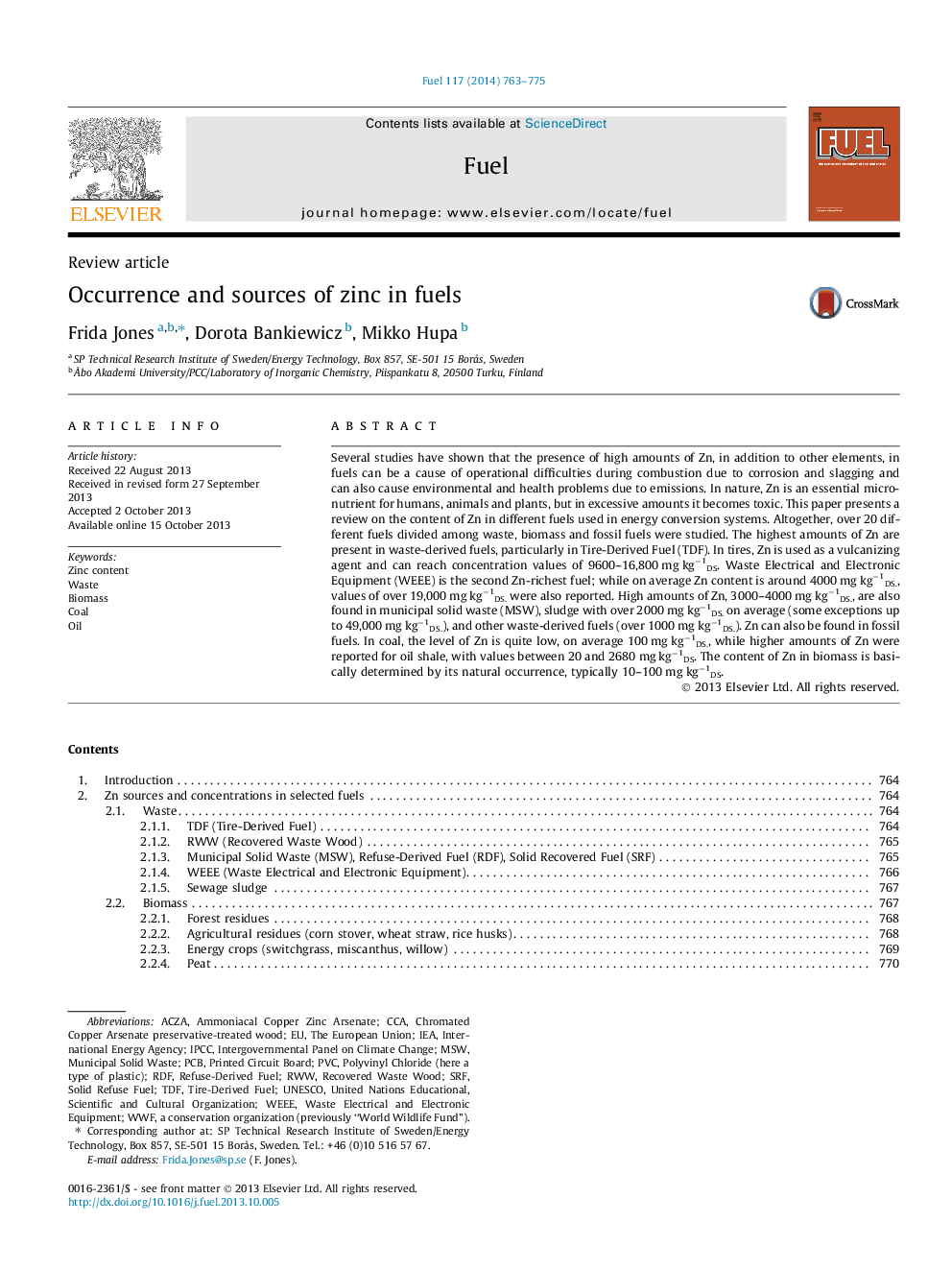| Article ID | Journal | Published Year | Pages | File Type |
|---|---|---|---|---|
| 10271877 | Fuel | 2014 | 13 Pages |
Abstract
Several studies have shown that the presence of high amounts of Zn, in addition to other elements, in fuels can be a cause of operational difficulties during combustion due to corrosion and slagging and can also cause environmental and health problems due to emissions. In nature, Zn is an essential micronutrient for humans, animals and plants, but in excessive amounts it becomes toxic. This paper presents a review on the content of Zn in different fuels used in energy conversion systems. Altogether, over 20 different fuels divided among waste, biomass and fossil fuels were studied. The highest amounts of Zn are present in waste-derived fuels, particularly in Tire-Derived Fuel (TDF). In tires, Zn is used as a vulcanizing agent and can reach concentration values of 9600-16,800 mg kgâ1DS. Waste Electrical and Electronic Equipment (WEEE) is the second Zn-richest fuel; while on average Zn content is around 4000 mg kgâ1DS., values of over 19,000 mg kgâ1DS. were also reported. High amounts of Zn, 3000-4000 mg kgâ1DS., are also found in municipal solid waste (MSW), sludge with over 2000 mg kgâ1DS. on average (some exceptions up to 49,000 mg kgâ1DS.), and other waste-derived fuels (over 1000 mg kgâ1DS.). Zn can also be found in fossil fuels. In coal, the level of Zn is quite low, on average 100 mg kgâ1DS., while higher amounts of Zn were reported for oil shale, with values between 20 and 2680 mg kgâ1DS. The content of Zn in biomass is basically determined by its natural occurrence, typically 10-100 mg kgâ1DS.
Keywords
RWWWEEESRFWWFCCAZinc contentTDFUnited Nations educational, scientific and cultural organizationIPCCIEAPCBMSWRDFInternational energy agencyThe European UnionWaste electrical and electronic equipmentPrinted Circuit BoardOilWasteMunicipal solid wasteCoalBiomassRefuse-derived fuelIntergovernmental Panel on Climate ChangePVCUNESCO
Related Topics
Physical Sciences and Engineering
Chemical Engineering
Chemical Engineering (General)
Authors
Frida Jones, Dorota Bankiewicz, Mikko Hupa,
